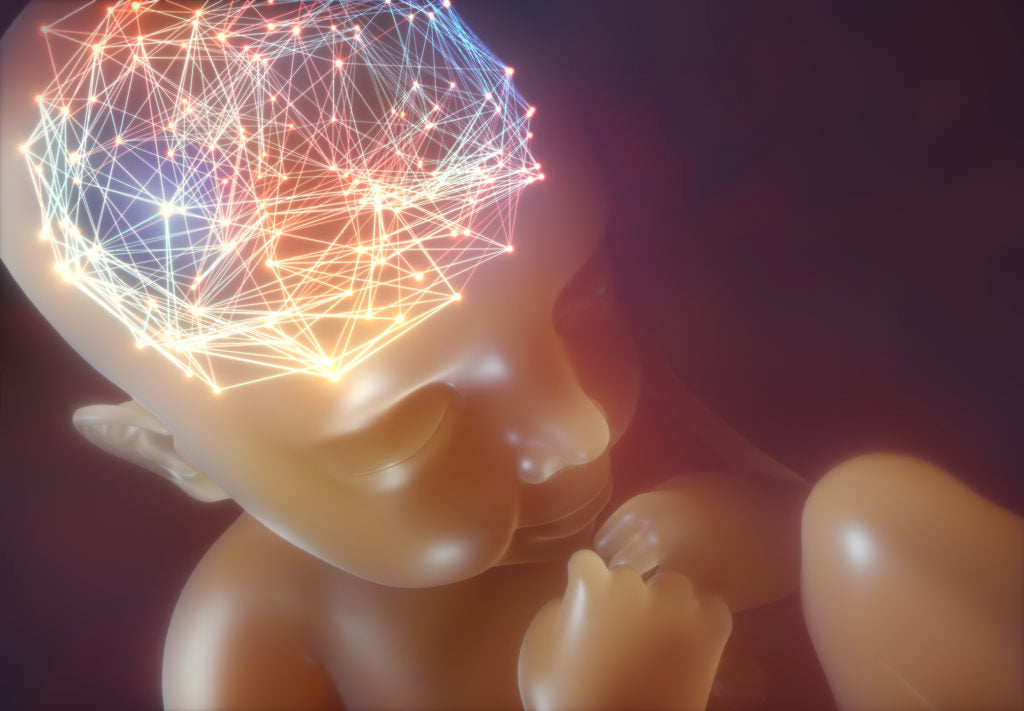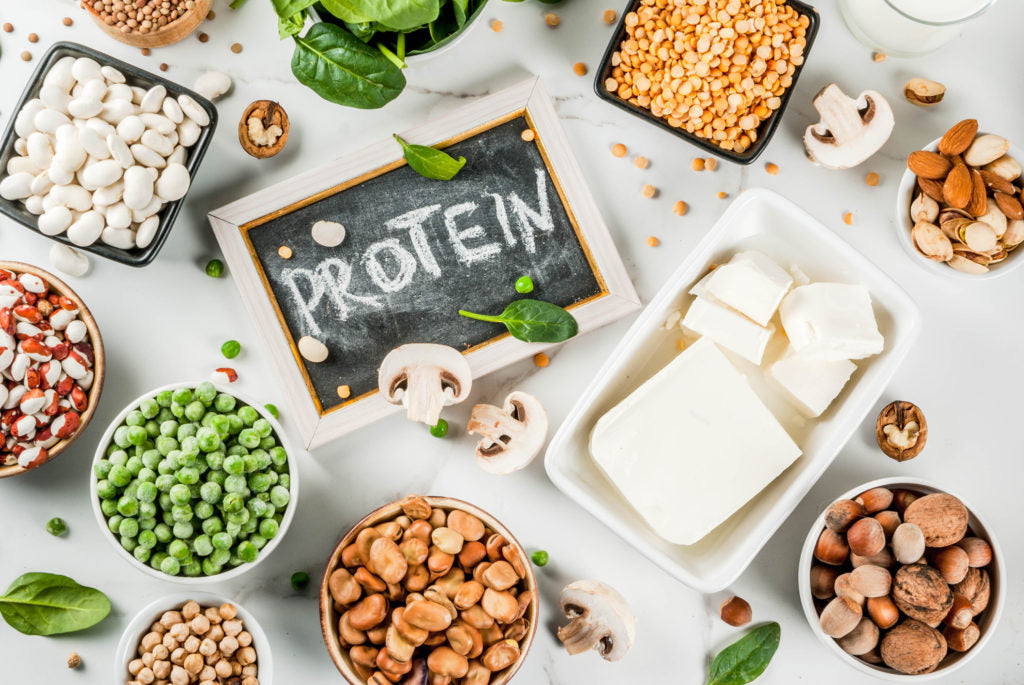No Meat? No Worries: Your Guide to a Healthy Vegan-Vegetarian Pregnancy

No Meat? No Worries: Your Guide to a Healthy Vegan-Vegetarian Pregnancy
Vegetarian and vegan diets are gaining momentum, with more people opting for a plant-based lifestyle. Plant foods provide plenty of vitamins and minerals that keep you feeling healthy, however, like other diets that restrict food groups, vegetarian and vegan diets require careful planning to prevent nutritional deficiencies. This is particularly the case during pregnancy, when nutrient requirements skyrocket to support the growth of your baby, making deficiency more likely to occur. The key to a healthy pregnancy is ensuring you have your fill of key nutrients so that you and bub remain healthy and happy.
For meat-free mothers-to-be, optimising your intake of iron, vitamin B12, choline, protein and essential fatty acids (EFAs) is vital to kicking pregnancy goals:
Iron and Vitamin B12
Why do you need it?
Iron and B12 are required to support your baby’s developing brain. Additionally, insufficient iron and B12 places you at risk of developing anaemia during pregnancy. When this occurs, your blood doesn’t have enough red blood cells to carry oxygen around your body and to your baby, increasing the risk of your baby being born prematurely or at a low birth weight.[1] Anaemia can also leave you feeling fatigued, dizzy and absentminded (‘baby brain’ anyone?).
Where is it found?
Whilst iron is present in many vegan-vegetarian foods, plant-based iron (known as non-haem iron) can be difficult to absorb. Additionally, B12 is found in animal-derived foods only, placing vegans and vegetarians at an increased risk of deficiency.[2] Because of this, most individuals turn to supplements to prevent deficiency, however many iron formulas commonly come with a side serving of constipation. Given that pregnancy is laden with discomforts of its own, adding constipation to these is not ideal.
How do you get it?
When choosing a supplement it is important to prioritise quality. For instance, iron bisglycinate is a more absorbable form of iron which does not typically come with side effects. This is because iron bisglycinate is iron bound to the amino acid, glycine (a small molecule that forms part of a protein), making it easier for the gut to absorb and less likely to cause constipation.

Choline
Why do you need it?
Choline also supports the brain function of both you and your baby, in addition to enhancing your baby’s neurological development throughout infancy. Choline deficiency has been associated with neural tube defects in children,[3] therefore adequate choline intake throughout pregnancy is essential for ensuring the healthy development of your baby’s brain and spinal cord.
Where is it found?
Whilst choline is present in high amounts within animal products such as meat, eggs and fish, plant-based foods contain lower levels of choline, which increases the risk of deficiency.
How do you get it?
Choline is found in Brussels sprouts, broccoli, cauliflower, asparagus and spinach. However, a vegan choline supplement can be an effective way of ensuring your choline levels remain adequately topped up throughout pregnancy.
Protein
Why do you need it?
Protein is composed of smaller molecules known as amino acids, which are necessary for the growth and maintenance of all cells within the body.[4] With this in mind, you can see how important protein is for the growth and development of your baby. In fact, insufficient protein intake has been linked to reduced gestation length, low birth weight, and increased likelihood of your baby developing impaired immune function.[5]

Where is it found?
Dietary protein is found in many plant-based foods, including tofu, tempeh, nuts and legumes.
How do you get it?
Incorporating a good quality vegan protein, such as pea protein powder, can help bolster protein intake. Pea protein is easy to digest, hypoallergenic (less likely to aggravate allergies or food intolerances), and is packed full of nutrients that support good health during pregnancy.
Essential Fatty Acids
Why do you need it?
Omega-3 EFAs are required to support brain and eye development of your growing baby, in addition to benefiting your own brain health and cognition.
Where is it found?
EFAs are termed ‘essential’ because the body cannot produce them, so they must be supplied through diet. Food sources of EFAs include fish, nuts, seeds and avocado, however, plant-based diets are known to provide lower levels of key EFAs, increasing the risk of deficiency.
How do you get it?
Most people are familiar with the EFA-rich properties of fish oil. The vegan equivalent of this is algal oil, which is plant-derived and bursting with EFAs to nourish you and your growing baby. Click here for more information about the importance of EFAs during pregnancy and vegan-friendly algal oil (your hot ticket to EFA health).
Your Nutritional Solution to the Deficiency Dilemma
Whilst a well-balanced diet is important, meeting your nutrient requirements during pregnancy is difficult and may affect your health and the health of your baby. Fortunately, good quality, vegan-friendly supplements can bridge these nutritional gaps and provide you with key nutrients that prevent deficiencies.
[1] Pregnancy, Birth and Baby. Anaemia in pregnancy [Internet]. Canberra ACT: Pregnancy, Birth and Baby; 2018 [updates 2018 Nov: cited 2019 Sept 26]. Available from: https://www.pregnancybirthbaby.org.au/anaemia-in-pregnancy
[2] Piccoli GB, Clari R, Vigotti FN, Leone F, Attini R, Cabiddu G, et al. Vegan-vegetarian diets in pregnancy: danger or panacea? A systematic narrative review. BJOG. 2015 Apr;122(5):623-33. doi: 10.1111/1471-0528.13280.
[3] Imbard A, Benoist JF, Blom HJ. Neural tube defects, folic acid and methylation. Int J Environ Res Public Health. 2013 Sep 17;10(9):4352-89. doi:10.3390/ijerph10094352.
[4] Wu G. Amino acids: metabolism, functions, and nutrition. Amino acids. 2009 May 1;37(1):1-7.
[5] Herring CM, Bazer FW, Johnson GA, Wu G. Impacts of maternal dietary protein intake on fetal survival, growth, and development. Exp Biol Med (Maywood). 2018 Mar;243(6):525-533. doi:10.1177/1535370218758275.
- Kevin Tresize






Comments 0